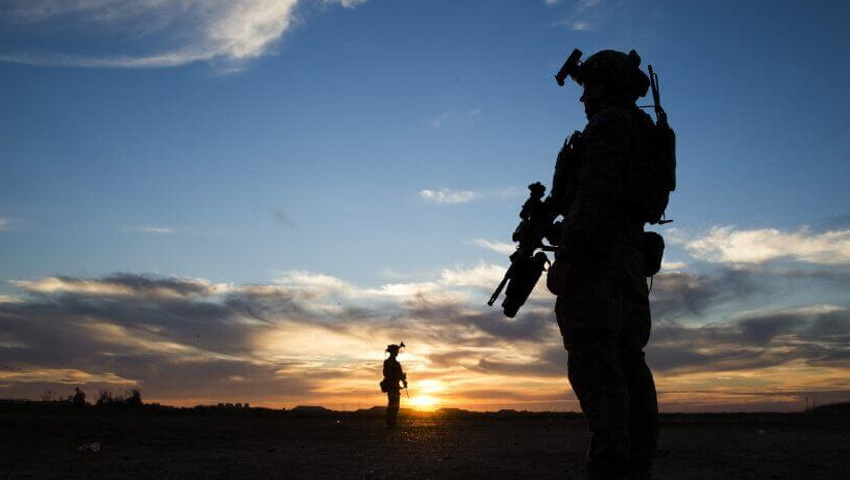Following the United States’ disorderly withdrawal from Afghanistan, analysts have questioned the US’ ongoing military primacy and its commitment to traditional allies.
In the era of 24-hour news coverage and a constant flow of videos taken from phone cameras beamed across social media, the US could not hide from their widely publicised and haphazard withdrawal from Afghanistan.
While their military approach to the withdrawal left many analysts questioning the US’ strategic capabilities from the White House down, the far more pressing challenge of global primacy from superpowers such as China left the world wondering whether the US’ military and geo-strategic supremacy had come to an end.
This is the view of Brahma Chellany writing in Project Syndicate and posted in ASPI’s The Strategist last month. Chellany, a professor at the Centre for Policy Research, went as far as to argue that the debacle put a definitive end to the “Pax Americana” and the overall supremacy of the West.
“At a time when its global pre-eminence was already being severely challenged by China, the United States may never recover from the blow this strategic and humanitarian disaster delivers to its international credibility and standing. The message it delivers to US allies is that they count on America’s support when they most need it at their own peril,” Chellany argued.
Indeed, the strategic signals of the chaotic withdrawal led Chellany to question the US’ commitment to its allies.
“The dramatic collapse of the Afghan defences and then the government was directly linked to the US betrayal. Biden admits Trump ‘drew US forces down to a bare minimum of 2,500’. By refusing to retain that small military footprint and by ordering a rapid exit at the onset of the annual fighting season, Biden pulled the rug out from under the Afghan military’s feet, thus facilitating the Taliban’s sweep,” Chellany continued.
More perplexing, however, was the White House’s refusal to take ownership over any mishandling of the crisis. In an address, President Biden rejected the idea of US maladministration throughout the withdrawal, placing the blame squarely at the feet of Afghanistan’s government and the Afghan National Army, sending yet further signals to US allies.
"The truth is: this did unfold more quickly than we anticipated. So, what's happened? Afghanistan political leaders gave up and fled the country. The Afghan military gave up, sometimes without trying to fight," President Biden said.
Such commentary from the White House raised the ire of many international spectators. Matt Zeller, war veteran and former CIA analyst, not only commended the dedication of many ANA soldiers, but also described how many were left ill-equipped to beat the Taliban.
“The idea that the Afghan military should be blamed for this? Do you know how many casualties the Afghan military took in an average year? More than the United States did in 20. When you’re not getting paid on a regular basis, when you’re not getting fuel, when no one is supply you with ammunition and yet you’re still showing up to the fight, how dare us for having to blame these people for not having the audacity to be able to survive a Taliban onslaught,” Zeller said on MSNBC.
Critically, the failure of the US’ withdrawal strategy including the evacuation of humanitarian visa holders damaged the perception of the West as dependable allies. Chellany believes that such implications will embolden the US’ enemies to leverage emerging fault lines between the US and their traditional allies.
“By contrast, China’s interests will be aided by the Taliban’s defeat of the world’s most powerful military. The exit of a vanquished America creates greater space for China’s coercion and expansionism, including against Taiwan, while underscoring the irreversible decline of US power,” Chellany continues.
To Chellany, US abandonment of allies is not a particularly new phenomenon. He cites the example of the US-Kurdish alliance, where their Kurdish allies were “dumped” before a Turkish offensive in 2019.
Just last week, Australia celebrated the 70th anniversary of the ANZUS treaty. In the face of an increasingly unstable Indo-Pacific, Australia must maintain its commitment to building a sovereign defence industry that is capable of protecting our national resilience, and enhancing our warfighters with cutting-edge equipment to fight tomorrow's battles.
Get involved with the discussion and let us know your thoughts on Australia’s future role and position in the Indo-Pacific region and what you would like to see from Australia's political leaders in terms of partisan and bipartisan agenda setting in the comments section below, or get in touch with


